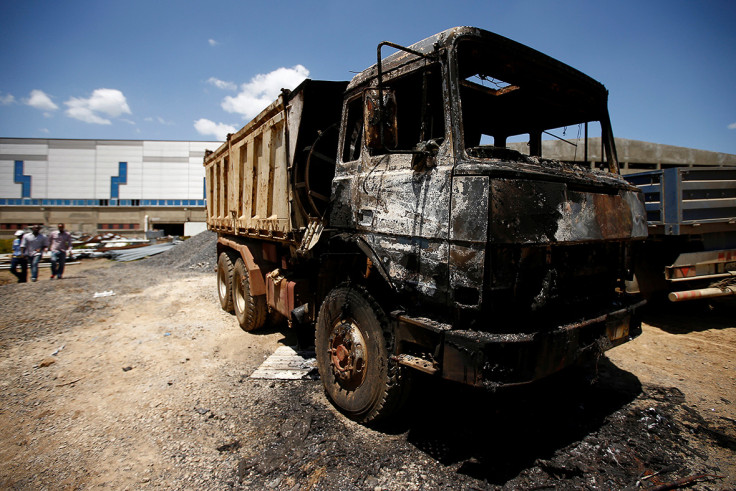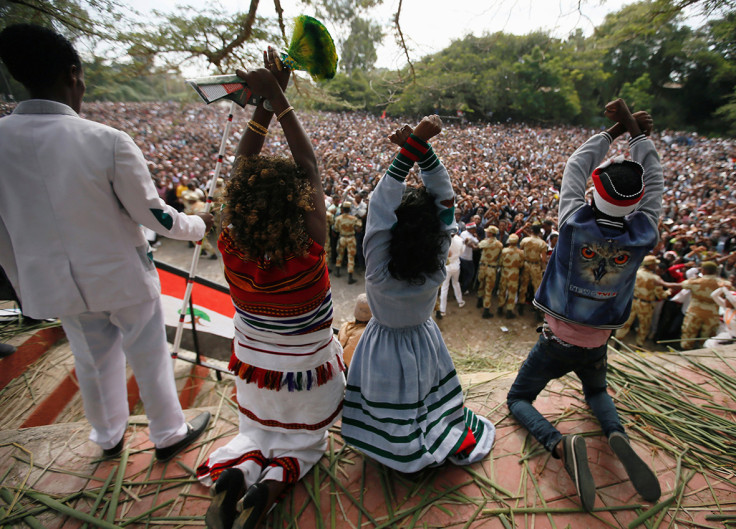Mass arrests in Ethiopia's Oromia region days after state of emergency declared
The 1,000 arrested are accused of violence and property damage and more are expected to be detained.
At least 1,000 people have been arrested in Ethiopia, which declared a nationwide state of emergency on 9 October due to ongoing anti-government protests. The mass arrest occurred in Sebeta town, near the capital Addis Ababa.
Those arrested were accused of carrying out violence and damaging properties. Earlier in October, anti-government protesters attacked public buildings, companies and firms, including foreign ones, in Oromia.
"Among the detainees, natives of the town are not more than 40 and 50. Majority of the detainees came from other areas of Oromia Regional State," the Sebeta mayor Ararsa Merdasa, was quoted as saying by the state-affiliated Fana Broadcasting Corporate.
He added that the authorities would release anyone found innocent, but said more arrests were expected.
The remarks came as an investors' peace conference started in Sebeta. Investors expressed concern over recent violence and called on the authorities to ensure long-lasting peace and security.
The mass arrest came shortly after Ethiopia disclosed new rules to be observed under the state of emergency, expected to last for the next six months.
Among other things, diplomats cannot travel more than 40km (25m) outside of Addis Ababa without official permission.
People are also barred from contacting individuals and groups that the state has labelled terrorists and from watching media channels including Oromia Media Network and Ethiopian Satellite Television and Radio.

Reasons behind protest
Demonstrators first took to the streets of Oromia in November 2015 to voice their dissent against a government draft plan that aimed to expand the boundaries of the capital.
They argued the so-called "Addis Ababa master plan" would lead to the forced evictions of Oromo farmers and would undermine the survival of the Oromo culture and language.
The Ethiopian government scrapped the master plan, following increasing agitation. Protests are continuing, with people calling for self-rule, the liberation of political prisoners and the end of what they perceive to be a military regime in the region. This includes an end to an alleged crackdown by security forces on "peaceful and unarmed" demonstrators, mainly students and farmers.
Human Rights Watch (HRW) and other rights groups have claimed that the security forces killed at least 100 people in the Amhara region during anti-government protests held in August. The government denied the allegations of violence. Protests erupted in Amhara after thousands took to the streets of Gondar and Bahir Dar to protest over the administration of disputed territories.
Members of the Welkait Tegede community demanded their lands be administered by the Amhara region, instead of the Tigray state.
Protesters, who identify themselves as ethnically Amhara – Ethiopia's second largest group – clashed with police during the demonstrations, labelled as the biggest anti-government unrest Ethiopia has witnessed in recent history.
On Monday, President Teshome told parliament, where no opposition party is represented, that the electoral system needs to be altered so that non-government MPs are elected.

© Copyright IBTimes 2025. All rights reserved.






















